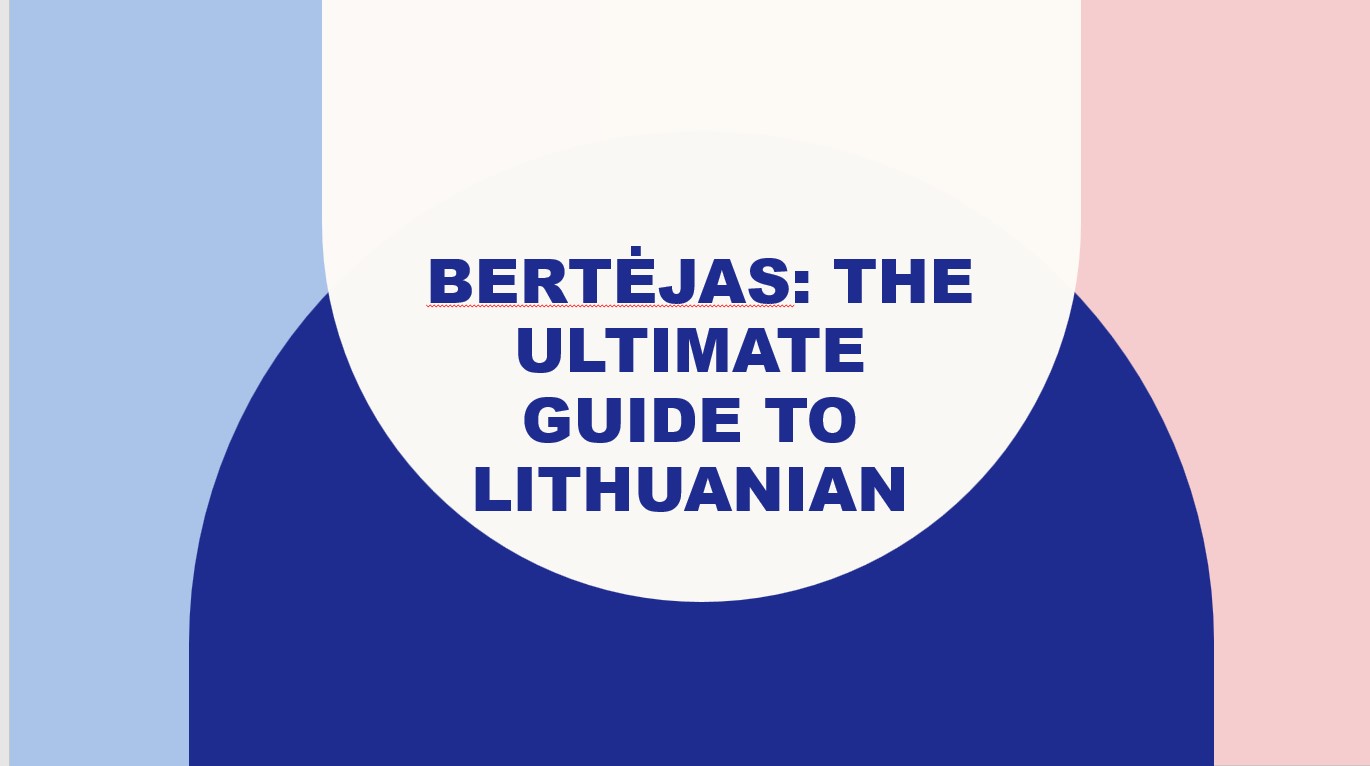Bertėjas, also known as a folk healer or traditional medicine practitioner, has been an integral part of Lithuanian culture for centuries. These healers use natural remedies and ancient techniques to treat various ailments and promote overall well-being. In this article, we will delve into the world of bertėjas, exploring their history, practices, and role in modern society.
History of Bertėjas
The term “bertėjas” comes from the Lithuanian word “berti,” which means to heal or cure. These healers have been a part of Lithuanian culture since ancient times, with records dating back to the 13th century. They were highly respected members of the community, often serving as advisors to rulers and treating commoners and nobles alike.
In the early days, bertėjas were primarily women, known as “moteris-bertėja.” They were believed to possess special powers and knowledge passed down through generations. However, during the Christianization of Lithuania in the 14th century, the Church condemned these healers as witches, leading to their persecution and decline in numbers.
Despite this, bertėjas continued to practice their healing methods, often in secret. With the rise of modern medicine, their role diminished, but they remained an essential part of rural communities, where access to doctors was limited. Today, bertėjas are recognized by the Lithuanian government as traditional medicine practitioners, and their practices are protected by law.
Traditional Healing Practices
Bertėjas use a combination of herbal remedies, massage, and energy healing to treat various ailments. Their methods are based on the belief that the body has its own healing abilities, and it is the bertėjas’ job to facilitate this process. They also believe that illness is caused by an imbalance of energy, and their treatments aim to restore this balance.
Herbal Remedies
Herbs play a crucial role in bertėjas’ healing practices. These healers have extensive knowledge of the medicinal properties of different plants and use them to create remedies for various ailments. They often gather herbs themselves from the wild or grow them in their gardens.
Some commonly used herbs include chamomile, yarrow, and St. John’s Wort, known for their anti-inflammatory and calming effects. These herbs are usually taken as teas, tinctures, or poultices, depending on the condition being treated.
Massage
Massage is another essential aspect of bertėjas’ healing practices. They use various techniques, such as cupping, scraping, and pressure point massage, to improve circulation, release tension, and promote relaxation. Massage is believed to help the body eliminate toxins and stimulate the immune system, making it an effective treatment for many conditions.
Energy Healing
Bertėjas also use energy healing to treat illnesses. This involves using their hands to manipulate the flow of energy in the body, similar to Reiki or acupuncture. They believe that by restoring the balance of energy, they can help the body heal itself. Energy healing is often used in conjunction with herbal remedies and massage for more effective results.
The Role of Bertėjas in Modern Society
Despite the advancements in modern medicine, bertėjas continue to play a vital role in Lithuanian society. Many people still turn to them for treatment, especially in rural areas where access to doctors may be limited. Bertėjas are also sought after for their ability to treat chronic conditions that modern medicine has been unable to cure.
Moreover, bertėjas are seen as keepers of traditional knowledge and culture. They are highly respected members of the community and often serve as advisors and mentors to younger generations. Many young people are also becoming interested in learning the ways of it, ensuring that this ancient practice will continue for years to come.
Bertėjas vs. Modern Medicine
One may wonder how bertėjas’ practices differ from modern medicine. While modern medicine focuses on treating specific symptoms or diseases, it take a holistic approach, considering the body, mind, and spirit as a whole. They also believe that prevention is key, and their treatments aim to maintain overall well-being rather than just treating illnesses.
Another significant difference is the use of natural remedies. Bertėjas rely solely on herbs and other natural substances, while modern medicine often uses synthetic drugs. This makes treatments more gentle and less likely to cause side effects.
The Future of Bertėjas
As Lithuania continues to embrace its traditional culture, bertėjas’ role is expected to grow. The Lithuanian government has recognized the importance of these healers and is working to preserve their knowledge and practices. There are also efforts to integrate this into the modern healthcare system, allowing them to work alongside doctors and provide patients with a more comprehensive treatment plan.
FAQs
What qualifications does a bertėjas have?
It ndo not have any formal qualifications. Their knowledge and skills are passed down through generations and gained through years of experience.
Are bertėjas recognized by the government?
Yes, Those are recognized by the Lithuanian government as traditional medicine practitioners, and their practices are protected by law.
Can anyone become a bertėjas?
While anyone can learn about herbal remedies and energy healing, b
ecoming a its requires a deep understanding of Lithuanian culture and traditions, which can only be gained through being raised in it.
Are bertėjas only found in Lithuania?
Bertėja are unique to Lithuanian culture, but similar healers can be found in other countries, such as shamans in South America and traditional Chinese medicine practitioners.
What conditions can bertėjas treat?
Bertėjas can treat a wide range of conditions, including digestive issues, respiratory problems, skin conditions, and mental health disorders. They also provide support for chronic illnesses and help with overall well-being.
Conclusion
Bertėjas, the Lithuanian folk healer, is a significant part of the country’s culture and history. Their practices, based on natural remedies and energy healing, have been passed down through generations and continue to play a vital role in modern society. As Lithuania embraces its traditional roots, it role is expected to grow, ensuring that this ancient practice will continue to thrive for years to come.



